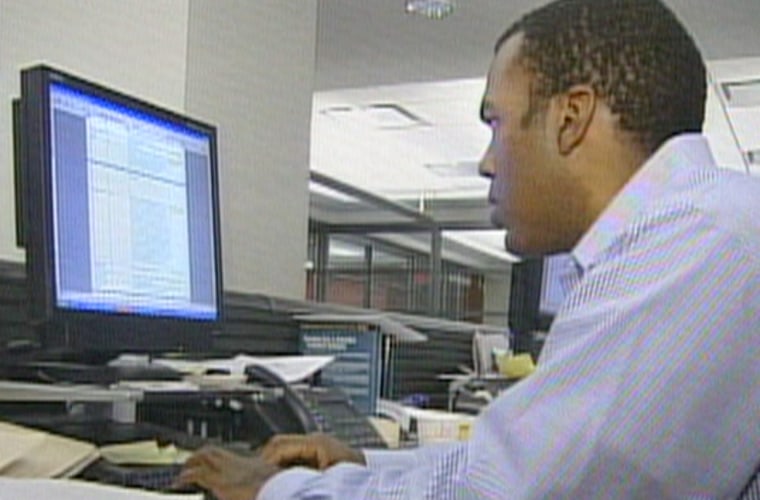A new report points to a stark economic divide that still exists between African Americans and whites in the United States. From income to homeownership to household wealth, blacks continue to lag behind whites, according to a study just released by advocacy group United for a Fair Economy.
The report found that a typical white family had six times the wealth of a black family in 2001. And more recent surveys show the savings and investing gaps between blacks and whites continue. Even black professionals earning six figures fall short when it comes to building a nest egg. Here's a look at some of the reasons for that disparity.
Thirty-one-year-old Lincoln Singleton started planning for his retirement a decade ago, but he still worries that he won't have enough money saved.
“I definitely need to start putting more money towards my 401(k)," he said.
Singleton is avoiding the mistakes a lot of other savers make.
According to the 2003 Minority Retirement Confidence Survey, only 59 percent of African American workers say they have saved for retirement, compared to 77 percent of white workers.
One reason: The lack of access to employer-sponsored retirement savings plans, according to Dallas Salisbury, president of the Employee Benefit Research Institute.
“A crucial factor for minorities is less likelihood of having a plan of saving at work,” he said. “As a result you don't get in the habit of payroll savings at work.”
Singleton, who comes from a working-class background, says that's true of his family. A marketing executive with a New York investment firm, he didn't learn about 401(k)s until he started his first job.
“We haven't had the opportunity in this country to accumulate wealth generation after generation and have parents and grandparents talking about the markets," said John Rogers, CEO of Ariel Mutual Funds. “It's just not in our blood to think about saving and investing the way white Americans do.”
According to a 2003 investor survey, while 36 percent of white Americans said they'd saved $100,000 or more for retirement, only 21 percent of African Americans had saved that much.
A lack of comfort with the stock market is often cited as a barrier to savings, according to Gregory Armstrong at Northwestern Mutual Financial Network.
“I often hear things like ‘I don't have a lot of money to start with’ or ‘I really need to get out from under this debt before I can do any retirement planning,'” he said. “Well, my response is ‘There's almost never too little money.’ Certainly not if you give yourself time to grow it.”
Learning that lesson at a young age is key to encourage more people to save. That's why financial literacy has become a paramount concern of organizations like Operation Hope, which has partnered with the U.S. Federal Reserve and other financial institutions to teach 125,000 inner city youth the basics of managing their finances.
“Saving $100 a month when you're 17 years of age, when you're 60 -- the magic of compounded interest -- you'll be worth $4.3 million, said John Bryant, Operation Hope’s CEO.
Yet even diligent savers like Singleton know it may not be easy.
“It's going to be tough,” he said. “But I'm willing to cut a lot of miscellaneous and extra stuff out of my budget -- like entertainment -- in order to make that goal happen financially.”
The rising cost of health care is another important reason to build up that retirement savings. Some people mistakenly believe that Medicare will take care of these expenses in retirement -- that's not true. In fact, starting from the day you retire, projections show that, on average, you'll need a quarter of a million dollars in savings to cover medical expenses for the rest of your life.
